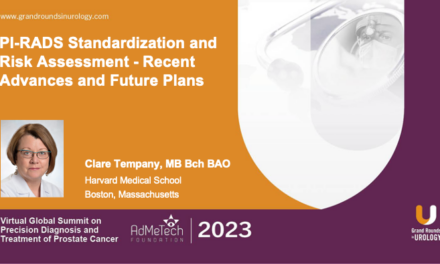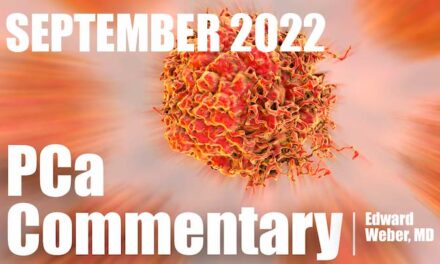Brian T. Helfand, MD, PhD, presented “Overview of the State of Genetic Testing and Future Applications in Prostate Cancer” during the 32nd International Prostate Cancer Update on March 7, 2022, in Snowbird, Utah.
How to cite: Helfand, Brian T. “Overview of the State of Genetic Testing and Future Applications in Prostate Cancer.” March 7 2022. Accessed Jan 2026. https://grandroundsinurology.com/overview-of-the-state-of-genetic-testing-and-future-applications-in-prostate-cancer/
Overview of the State of Genetic Testing and Future Applications in Prostate Cancer – Summary#
Brian T. Helfand, MD, PhD, Chief of the Division of Urology and the Ronald L. Chez Family and Richard Melman Family Endowed Chair at NorthShore University HealthSystem in Evanston, Illinois, discusses current and potential future applications of genetic testing in prostate cancer screening and treatment. He explains that genetic testing has applications throughout the patient journey. At the prevention and screening stage, genetic testing can determine which men will benefit from screening. At the diagnosis stage, it can determine which men will benefit from biopsy. During early-stage disease, genetic testing can help identify which men will benefit from definitive treatment. Finally, during late-stage disease, genetic testing can identify the men that will benefit from advanced therapies. Dr. Helfand notes that there are two kinds of genetic testing, germline and somatic, and not all tests are relevant at all stages of the patient journey. He then gives an overview of germline genetic testing’s role in screening, arguing that because family history, rare pathogenic mutations (RPMs), and genetic risk score (GRS) all measure risk independently, a comprehensive inherited risk assessment should include all three tools. Dr. Helfand particularly focuses on GRS, defining it as a number calculated based on the cumulative variation across multiple single nucleotide polymorphisms (SNPs), which is then used to provide an estimate of disease risk. He notes that GRS is simple to interpret and more informative than family history. Dr. Helfand also observes that GRS is correlated with number and laterality of tumor cores. GRS, he argues, is useful for risk stratification for both screening and active surveillance. He notes that RPMs can help with stratification in terms of disease aggressiveness. Dr. Helfand concludes by arguing that genetic testing for prostate cancer will be pivotal in the future and should be included in guidelines for both prevention and screening.
About The 32nd Annual International Prostate Cancer Update:#
The International Prostate Cancer Update (IPCU), founded in 1990, is a multi-day CME conference focused on prostate cancer treatment updates with expert, international faculty. It is led by expert physicians and is designed for urologists, medical oncologists, radiation oncologists, and other healthcare professionals involved in the diagnosis and treatment of prostate cancer. Dr. Helfand delivered this educational activity during the 32nd iteration of the meeting in March 2022 in Snowbird, Utah.
ABOUT THE AUTHOR
Brian T. Helfand, MD, PhD, is Chief of the Division of Urology and the Ronald L. Chez Family and Richard Melman Family Endowed Chair at NorthShore University HealthSystem. He is Director of the Personalized Prostate Program and Director of Clinical Research in the Program for Personalized Cancer Care (PPCC). He is also an active surgical scientist who is involved in the care of patients with prostate cancer. His clinical care and research is focused on the implementation of genetic tests and biomarker studies for prostate cancer.
Dr. Helfand completed his undergraduate degree at Emory University. He received his medical training and PhD in Cell and Molecular Biology and Genetics from Northwestern University. He is a fellowship-trained urologic oncologist who has focused his research career on prostate cancer. He was recruited in 2011 from Northwestern University’s Feinberg School of Medicine, where he was faculty in the Department of Urology. Dr. Helfand is an internationally-known urologist and genomic translational researcher. He has received multiple grants from the NIH and has published over 140 peer-reviewed manuscripts in journals such as Nature Genetics, The Journal of Cell Biology, and Science Translational Medicine.
Dr. Helfand is involved in national and international research collaborations as an active member of the International Consortium for Prostate Cancer Genetics (ICPCG), the Prostate Cancer Specialized Program of Research Excellence (SPORE), the IMPACT) study, and the Lower Urinary Tract Dysfunction Research Network (LURN). His current research goals are focused on germline genetic variations and mutations. He is determined to use this information to assist in personal and informed clinical decision making about prostate cancer screening and treatment for patients and their family members.




